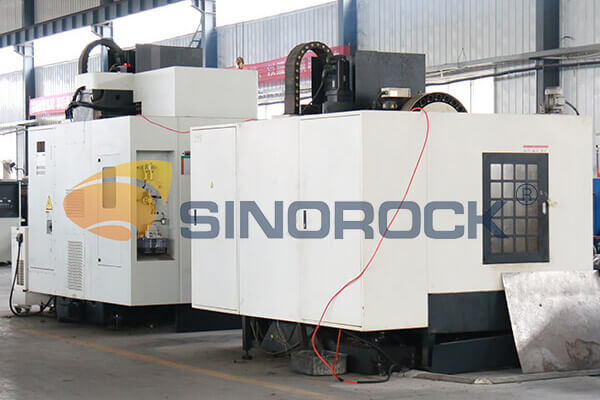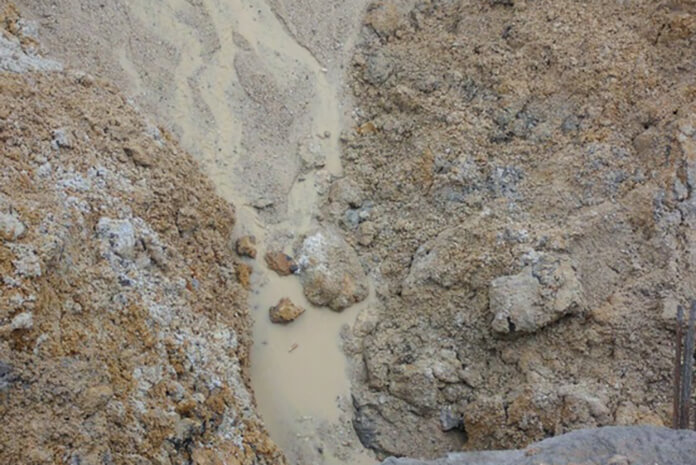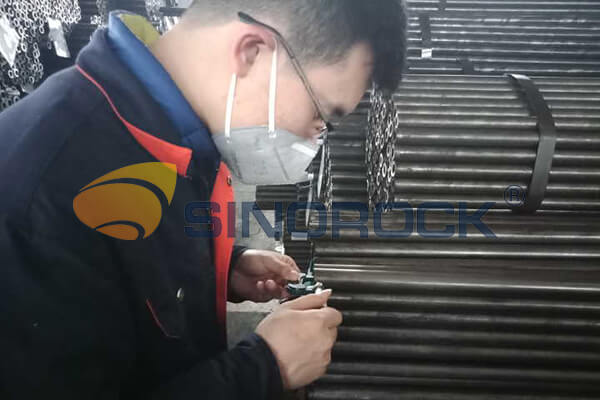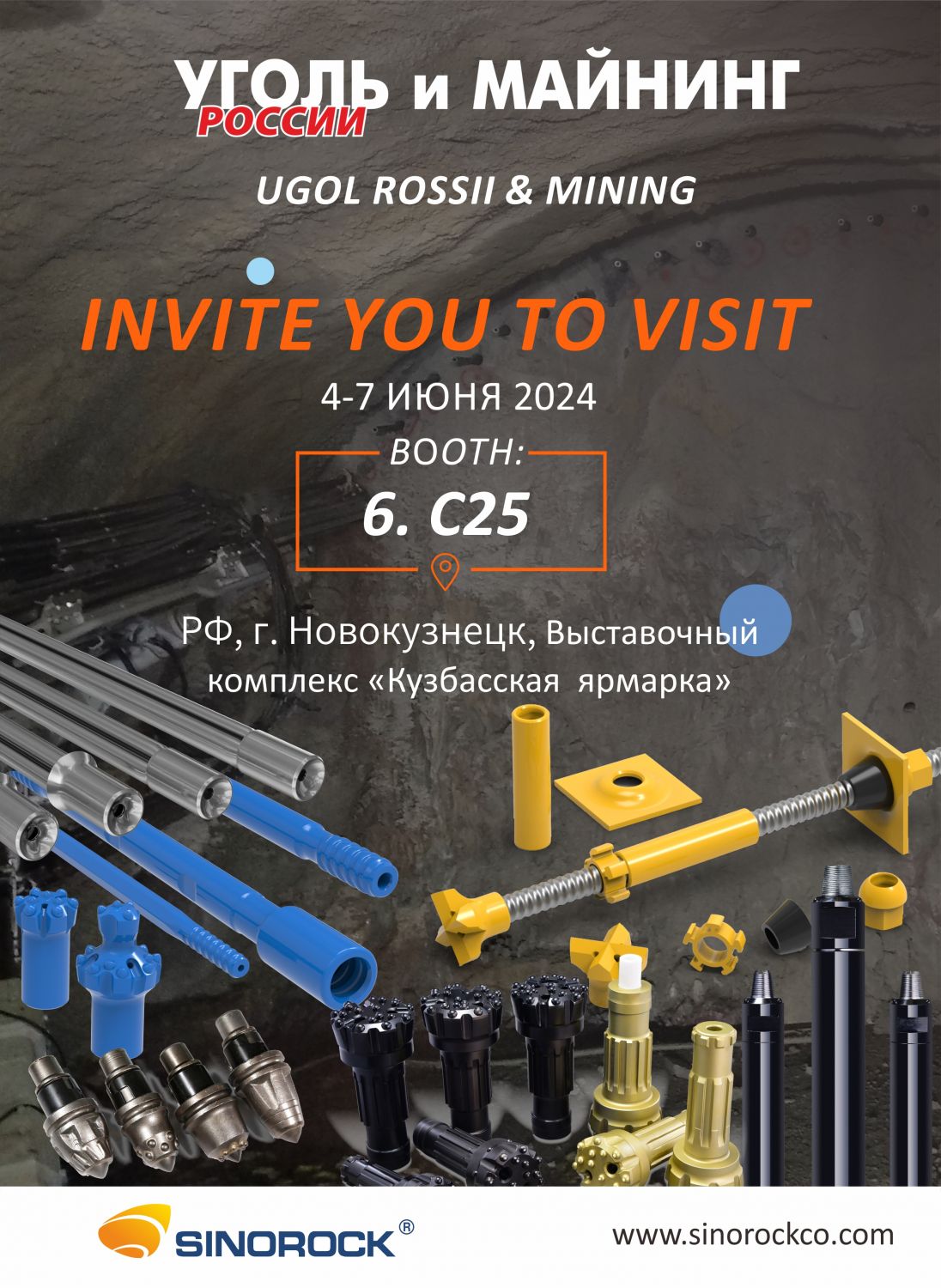What Advantages Do Self Drilling Concrete Bolts Have Comparing to the Full Lenth Mortar Bolts?
Time:2022-02-08From:sinorock View:
In many projects, loose geological conditions will be encountered during construction, such as pebble layer, sand layer, strongly weathered limestone, etc. Whether it is a self-drilling concrete anchor bolts or an ordinary full-length mortar bolt, there will be many unexpected difficulties in construction under these geological conditions. Then, which is better when supporting the construction under the geological conditions of strongly weathered limestone, self-drilling concrete anchor bolts or full-length mortar bolts for?
Problems encountered in the construction of full-length mortar bolts:
1. Due to the broken rock, it is very easy to collapse the hole when the hand-held or hydraulic drilling rig is making a hole, the bolt cannot be inserted into the bottom of the hole at all, and the depth of the bolt cannot be guaranteed at all;
2. In the case of collapsed holes, in order to ensure the depth of the bolts, the holes have to be blown and washed repeatedly, resulting in a lot of waste of labor and equipment resources;
3. The drill pipe is stuck in the hole by the broken stones, resulting in a lot of waste of drill pipe resources and construction time;
4. Due to the crushing of the rock and the collapse of the hole, after the installation of the bolt is completed, the grouting channel is blocked due to the collapse of the crushed stone in the hole, and the grouting quality cannot be guaranteed;
5. Because the bolt construction cannot be carried out normally, the subsequent support construction of hanging steel mesh and shotcrete is also stagnant, resulting in a serious delay in the entire support construction.
To sum up, due to the special geological conditions and the construction limitations of traditional full-length mortar bolts, it is basically possible to choose to abandon the use of full-length mortar bolts.
The self-drilling concrete anchor bolts body is hollow, and the rod body is also used as a drill pipe and an anchor rod. The grout is injected from the drill bit through the rod body and fills the cracks in the rock and soil mass. It is a new type of anchoring material integrating drilling, grouting, and anchoring. Self-drilling concrete anchor bolts can overcome the adverse geological conditions encountered during the construction of full-length mortar bolts, and can achieve better anchoring and support effects.


Advantages of using self-drilling concrete anchor bolts in strongly weathered limestone geological conditions:
1. The use of self-drilling anchor rod construction avoids the waste of labor and time caused by the collapse of the hole. Once drilling into place, there is no need to install the anchor rod separately, and there is no need to worry about the drill rod being stuck in the hole. The screw rod body is both a drill rod. is also an anchor;
2. The self-drilling concrete anchor bolts simplifies the construction process, shortens the construction time, and is conducive to improving production efficiency and benefits;
3. Grouting through the inner hole of the self-drilling concrete anchor bolts can more effectively ensure the smoothness of the grouting channel, which is beneficial to improve the grouting efficiency;
4. Since the self-drilling concrete bolts comes with a matching slurry stopper, it can ensure the grouting pressure, making it easier for the slurry to enter the broken rock around the bolt hole and consolidate it, so as to stabilize the surrounding rock. Purpose.


By comparison, I believe that everyone can easily see the advantages of self-drilling concrete bolts in the construction of strong weathered limestone geological conditions. Through this comparison, Sinorock wants to tell everyone that this is the main reason why self-drilling bolts are gradually being widely used.
latest news
-

- 3 Crucial Factors That Impact the Quality of Self-Drilling Hollow Bolts
- Time:2025-01-26From:This Site
- As we all know, the quality of the self-drilling hollow bolts is vital to the whole project. It determines if the project is safe for the people in future use. Then, what will affect the quality of the self-drilling hollow bolts?
- View details
-

- Self-Drilling Anchor Bolt Construction in Complex Geological Slope
- Time:2025-01-24From:This Site
- During construction, Self-drilling hollow anchor bolt integrates drilling, grouting and anchoring functions, which significantly improves drilling efficiency. And under the action of pressure pump, the grouting in the rock strata and voids is full, which ensures the grouting thickness and anchoring effect.
- View details
-

- How Does Self-drilling Rock Bolt Drill in Quicksand Geological Condition?
- Time:2025-01-19From:This Site
- This in-depth guide explores how self-drilling rock bolts function in quicksand geological conditions, covering the challenges, construction methods, and best practices for ensuring effective anchorage in unstable, fluidic soil layers.
- View details
-

- Quality Control: the Vital Factor of A SDA Bolt Factory
- Time:2025-01-09From:This Site
- Sinorock’s comprehensive quality control system, from supplier management to outgoing inspections, ensuring the highest standards for self-drilling anchor bolts in construction.
- View details
-
.png)
- International Women's Day with Strawberry-picking
- Time:2024-03-09From:This Site
- Marked the annual observance of International Women's Day, and to commemorate this significant event, Sinorock organized a special strawberry-picking event exclusively for its female employees.
- View details
-

- Celebrate the 74th anniversary of the founding of the People's Republic of China
- Time:2023-10-01From:This Site
- On October 1st every year, we observe the annual National Day, commemorating the birth of our beloved motherland.
- View details
-
.jpg)
- SINOROCK to Attend EXPOMINA PERÚ 2024 in Lima, Peru
- Time:2024-08-10From:This Site
- Sinorock to Attend EXPOMINA PERÚ 2024 in Lima, Peru
- View details
-
.jpg)
- SINOROCK to Participate in MINING AND METALS CENTRAL ASIA 2024
- Time:2024-08-08From:This Site
- SINOROCK to Participate in MINING AND METALS CENTRAL ASIA 2024
- View details
-

- SINOROCK Gears Up for UGOL ROSSII & MINING 2024 with Custom Mining Solutions
- Time:2024-05-15From:This Site
- SINOROCK is thrilled to announce its participation in the highly anticipated 32nd International Trade Fair for Mining Technology, UGOL ROSSII & MINING 2024. The event will take place at the Exhibition complex "Kuzbass Fair" in Novokuznetsk, Kemerovo region - Kuzbass, Russia, from June 4th to 7th, 2024.
- View details
 Download
Download 


